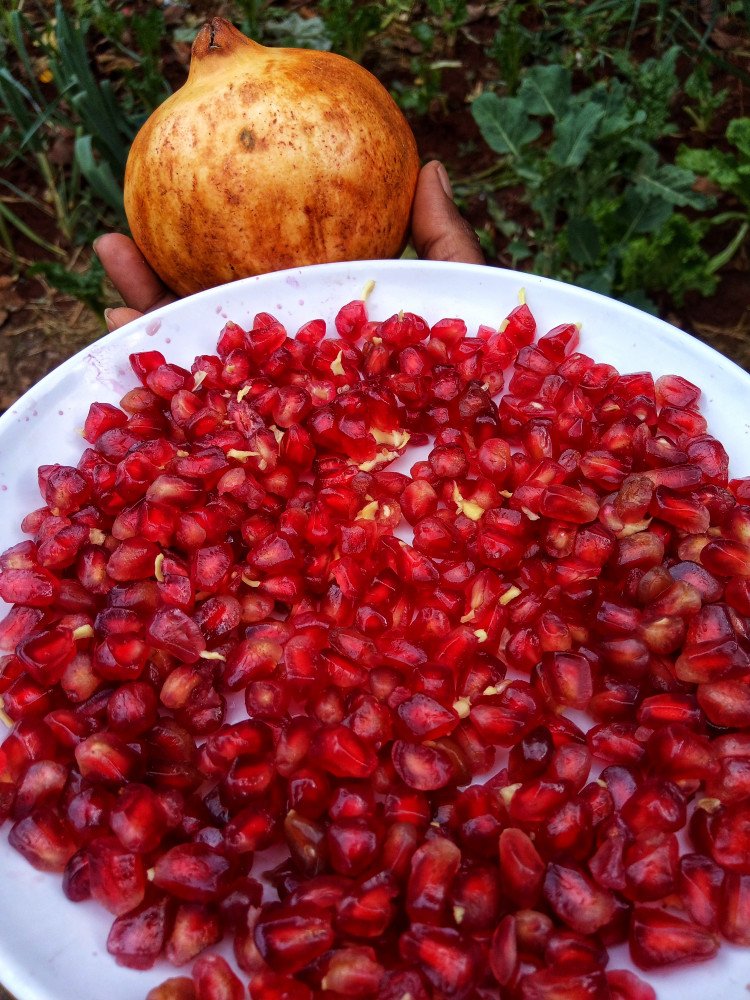In my childhood days we had one kukumanga tree in the garden. I wouldn’t get to know nor confirm the exact color of the ripened fruit until as an adult, after I came across the fruit in the market.This was long after our tree was gone, as we would eat the fruit unripened.
The moment we perceived its maturity, by beginning to change to a red- pinkish color, we plucked and ate. It was then, I discovered the taste of the fruit which is (tarty and sweet).
This is one healthy fruit and for many reasons. Also known as the ‘jewel of fruits’, the pomegranate (Punica Granatum), is native to Iran (Persia). It is cultivated in tropical climates in the Asian and Mediterranean regions.
The edible part of this fruit are its red seeds which are the source of its name, as they look like shiny red jewels. Pomegranate is known as mkomamanga in Swahili and kukumanga in most East African coastal regions, where the fruit is grown by small scale farmers, for domestic use.
Other countries where it is cultivated include parts of the United States, Afghanistan, Russia, India, China, and Japan. In Africa the pomegranate is commercially cultivated in South Africa, where it is harvested in the summer months.
Pomegranate has existed for millennia, and has been used as folk/ traditional medicine for generations, to treat parasites and diarrhea. Being one of the oldest cultivated fruit across different cultures, the pomegranate has its share in mythology sphere.
Click here to get details on mythology. You will also find additional information here.Various religions including Christianity also have their share in the pomegranate myths and beliefs. Follow this link to read on some of them.
The pomegranate fruit is consumed by peeling the bitter skin, then chewing on the whole red seeds. In culinary, it is used in juices, jams, hot and cold sauces, desserts and my all favorite as an ingredient in smoothies. The fruit juice is also used as a natural preservatives due to its ability to harbor the growth of harmful fungus and bacteria.
This wonderful nectar is absolutely full of vitamins, AB and C, phosphorus, potassium, sodium and iron, pomegranates have been proven to contain more antioxidants than red wine or green tea.
Benefits of pomegranate
- They have compounds like punicalin, ellagic acid and punicalagin that are rich antioxidants
- Pomegranate juice has a prebiotic gut effect, which leads to increase growth of good bacteria in the gut
- It contains a high amount of polyphenols, which help in lowering of blood pressure.
- The phenolic antioxidants also help in prevention of cancer and reduces birth complications inpregnant women.
- Flavonols in pomegranate juice may help block the inflammation that contributes to osteoarthritis and cartilage damage
However you choose to consume this ancient superfruit, it's unlimited health benefits should encourage you to incorporate it in your diet.




Add your reply
Replies